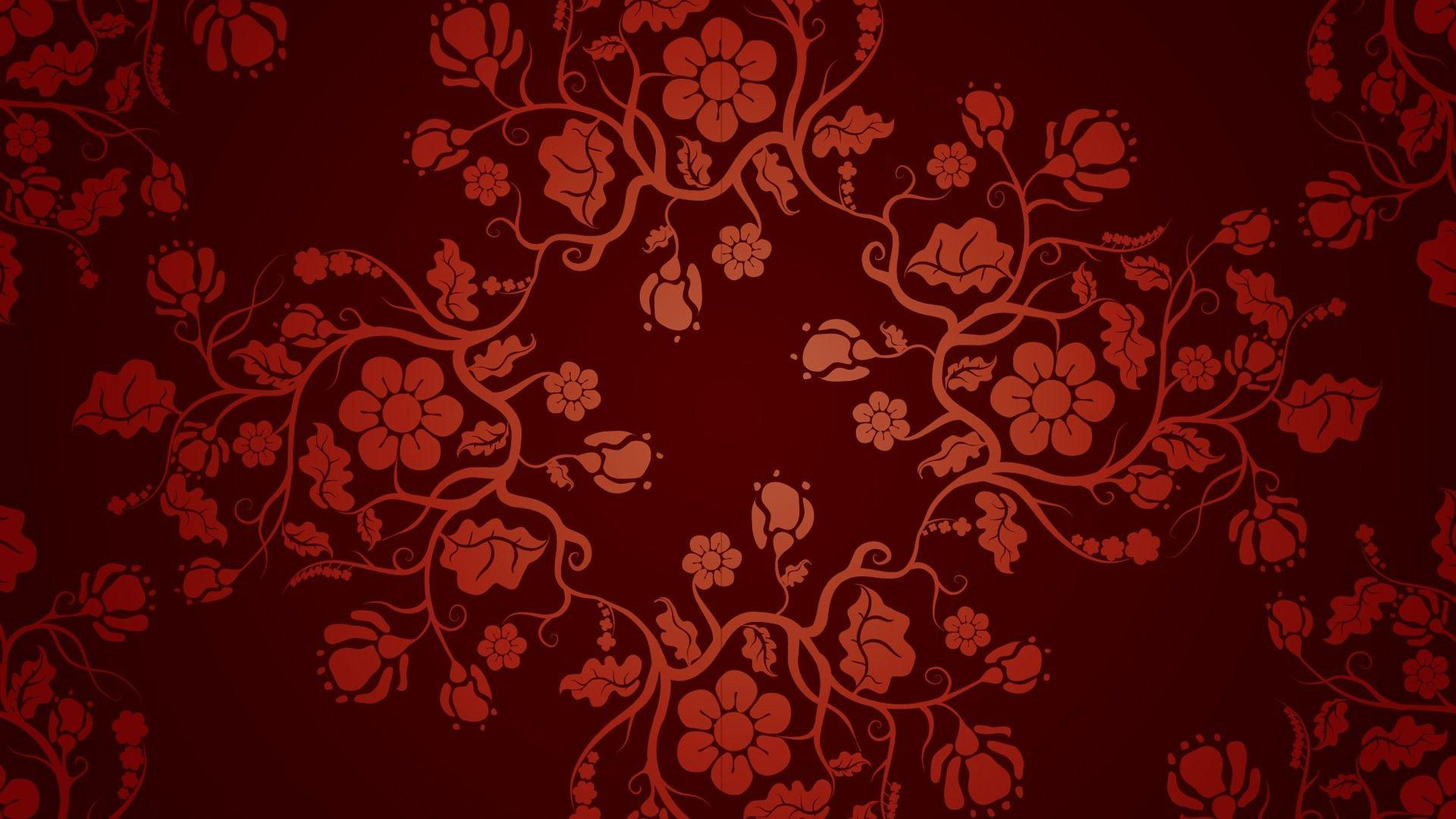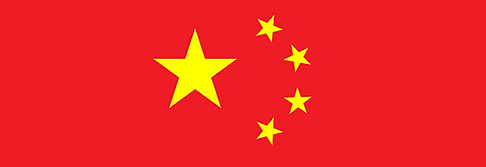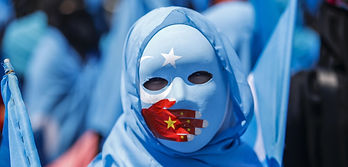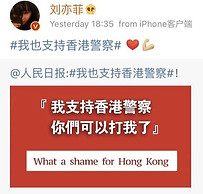

The "Universality" of Mulan: The Troubling Themes of Privilege and Nationalism

PRIVILEGE
While the handling of "qi" in Mulan (2020) is an epitome of inauthenticity in the live-action remake, the exclusivity of the phenomenon also has a substantial impact on the theme of privilege that underscores the film. As Christina Pan from The Spectator aptly puts in her scathing review of Mulan (2020), "instead of having Mulan fight alongside men and prove that women are equally competent as men, the message is that only a few women who are 'chosen' are capable" through the use of the mythical qi. Pan goes on to elaborate that Mulan's sister acts as a foil for the titular protagonist in the film. Unlike Mulan, the sister is not naturally attuned to a strong sense of qi and, as a result, fulfills her role in the narrative with the announcement of her engagement at the movie's conclusion. In essence, the implication suggests that untalented women in Chinese society should not have aspirations, and that their "duty" is to be nothing more than a child-bearer in society, a grossly outdated standard that bodes ill among the "woke" Western audiences the film is partly designed for. Moreover, unlike its animated predecessor, the message to young girls who watch Mulan (2020) is that hard work and perseverance do not lead to success. Ultimately, only those with privilege can find success.

NATIONALISM
Mulan (2020) tackles themes of nationalism in divisive ways that are a stark departure from its predecessor. The most prominent of these divisive ways is Mulan's upholding of the patriarchy through her "manliness" on the battlefield. Qi again enters the picture here: by harnessing this mystical energy, Mulan is able to outmaneuver, outmatch, and outclass all of her opponents, beating them into submission with her sheer strength and willpower. This is most clearly illustrated when she violently kills Böri Khan with his own arrow. Mulan's "manliess" is what makes her a "hero" in this world. Yet Mulan also exhibits the traits of the "perfect" soldier, which is most notably demonstrated in her conversation with the emperor after saving him from Böri: “I know my place. And it is my duty to fight for the kingdom and protect the emperor.” This line, in particular, resonates with undertones of nationalism; as the "perfect" soldier, Mulan is saying that she will always put country before everything else. Unlike animated Mulan, Liu's Mulan finds her place in society as a "man" by joining the emperor's guard at the film's conclusion. As Christina Pan perfectly articulates: "Mulan doesn’t challenge the status quo. She is the status quo."

A Reflection Between Fable and Reality: Policy Brutality, Racism, and Genocide

反
射
Reflection
When discussing the concept of flat mirror within Cartesian perspectivalism, I introduced the idea of mimesis, which purports that art and literature imitate and represent the real world. I return to this notion of mimesis in the conclusion of this project by examining how themes in Mulan (2020) like privilege and nationalism are reflected and entangled with their surrounding discourse(s) and culture(s). Furthermore, I believe that these relationships constitute a type of "universality" that does not detach the self from art and literature, but rather facilitates the permeation of broad concepts and ideas across myriad cultures. But, while there is a degree of conceptual universality that can exist in intersectional spaces, this does not mean that there is a sameness or singularity in how they are encountered, interpreted, and interrogated. The mere existence of the racialized gaze proves this. To view Disney's Mulan, whether it be animated or live-action, through the lens of Cartesian perspectivalism is not just folly then; it is simply not possible. Both these adaptations of Mulan hold different values for different audiences. For Western audiences, the films offer a glimpse into the many cultures that permeate the Orient; for Chinese audiences, the film offers an update/new take on a culturally revered fable. The underlying themes and messages, then, become quintessential parts of a narrative and icon that are reflected back into the real world.

Save
Uyghur
Muslims
In early March 2021, Hong Kong CNN alleged that actions by the Chinese government in the Xinjiang province against the Uyghur people had violated every single provision in the United Nations' Genocide Convention. The CNN report, which comes from the Newlines Institute for Strategy and Policy in Washington D.C., claims that "[u]p to 2 million Uyghurs and other Muslim minorities are believe to have been placed in a sprawling network of detention centers across the region," some going insofar as to call these 'centers' internment camps. While China claims the centers are being used to prevent religious extremism and terrorism, detainees assert that they were "subjected to indoctrination, sexually abused and even forcibly sterilized." Moreover, Disney's Mulan (2020) received criticism for their acknowledgement of Xinjiang in the film's end credits, specifically thanking the Xinjiang Public Security Bureau in Turpan, a government entity affiliated with the Uyghur internment camps. In rebuttal, Disney has argued that it is standard industry practice to acknowledge all third-party organizations who enable or contribute to the making any given film. However, while perhaps a more extreme form of viewership, some critics have drawn comparisons between the Rouran antagonists led by Böri Khan and the way(s) Uyghur Muslims are portrayed by the Chinese Communist Party. While these critiques seem outlandish, when coupled with the film's theme of nationalism, this creates a Cartesian illusion among audiences that Uyghurs represent "the dark-skinned invaders" as opposed to merely resembling them.
#BoycottMulan
#EndPoliceBrutality


Mulan (2020) actress Yifei Liu received substantial backlash in August 2019 after tweeting her support for the Hong Kong police concerning the 2019-20 Hong Kong protests. However, what makes this particularly interesting is the cultural dichotomy at play—while Liu's post was well-received by Chinese nationalists, the international community took up arms against the actress, accusing her of supporting police brutality and kickstarting the #BoycottMulan trend. The inflammatory reaction consequently forced Liu to make a public apology for her statement where she "acknowledges" her lack of awareness on the subject. Regardless of whether or not Liu is being earnest in her apology, both of her interactions imply the privilege she has as an individual who isn't on the front lines of this conflict. Furthermore, Liu is able to make these statements without government repercussion—not because of her celebrity status, but because both her rhetoric and stance reinforce the nationalist ideals of the Chinese Communist Party. The ideals held by Liu and her fictional live-action counterpart then are presented as one and the same. "The ugly" of Mulan (2020), then, is that its message of privilege and nationalism suggests the need for minority identities and groups—like the people of Hong Kong and the Uyghur Muslims—to be subsumed and assimilated into the People's Republic of China. Mulan, now privileged by her qi and centered by her nationalist ideals, is the new "reflection" of what it means to be a successful in the real world.